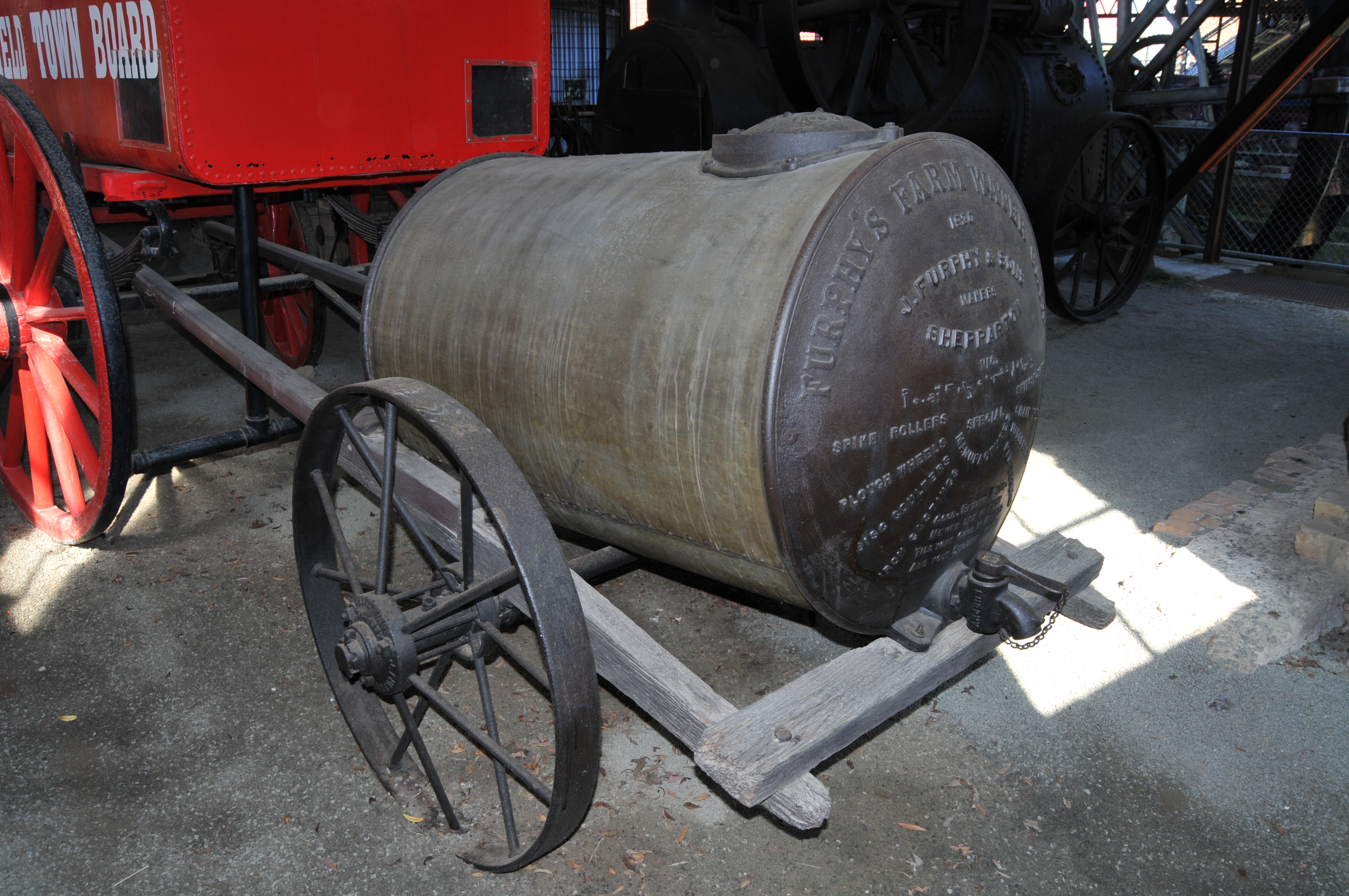John Furphy on:
[Wikipedia]
[Google]
[Amazon]
 John Furphy (17 June 184223 September 1920) was an Australian blacksmith credited with inventing the "furphy", a water cart that was used by the Australian army during the first World War.
John Furphy (17 June 184223 September 1920) was an Australian blacksmith credited with inventing the "furphy", a water cart that was used by the Australian army during the first World War.
Early life
Furphy was born on 17 June 1842 inMoonee Ponds
Moonee Ponds is an inner-city suburb in Melbourne, Victoria, Australia, north-west of Melbourne's Central Business District, located within the City of Moonee Valley local government area. Moonee Ponds recorded a population of 16,224 at the 2 ...
, Victoria
Victoria most commonly refers to:
* Victoria (Australia), a state of the Commonwealth of Australia
* Victoria, British Columbia, provincial capital of British Columbia, Canada
* Victoria (mythology), Roman goddess of Victory
* Victoria, Seychelle ...
, the eldest son of farmer Samuel Furphy and dressmaker Judith (née
A birth name is the name of a person given upon birth. The term may be applied to the surname, the given name, or the entire name. Where births are required to be officially registered, the entire name entered onto a birth certificate or birth re ...
Hare), both of whom were Irish
Irish may refer to:
Common meanings
* Someone or something of, from, or related to:
** Ireland, an island situated off the north-western coast of continental Europe
***Éire, Irish language name for the isle
** Northern Ireland, a constituent unit ...
immigrants. Initially home-schooled, Furphy later attended public schools in Kangaroo Ground and Kyneton
Kyneton ( ) is a town in the Macedon Ranges region of Victoria, Australia. The Calder Freeway bypasses Kyneton to the north and east. Kyneton is on Dja Dja Wurrung, Taungurung and Wurundjeri Woi Wurrung country.
The town has four main streets: ...
. His younger brother was the author Joseph Furphy
Joseph Furphy ( Irish: Seosamh Ó Foirbhithe; 26 September 1843 – 13 September 1912) was an Australian author and poet who is widely regarded as the "Father of the Australian novel". He mostly wrote under the pseudonym Tom Collins and is best ...
, best known for the Australian novel '' Such is Life''.
Career
Furphy first found employment at the Kyneton-based farm machinery manufacturer Hutcheson & Walker, before becoming an independent blacksmith in 1864. Moving to nearby Shepparton in 1873, he established the first blacksmith's shop in the township, gradually expanding into iron works. By 1888, Furphy had the most extensive foundry in northern Victoria. His patented grain stripper, which preceded the combine harvester was awarded the first prize at the 1884 Grand National Show. His agricultural machinery, including a grain stripper, a furrow plough and iron swingletrees, were likewise acclaimed at the International Exhibition from 1888 to 1889. Furphy's most recognised agricultural product was the "Furphy Farm Water Cart", a water cart with a cylindrical tank made of iron, placed in a wooden frame on cast-iron wheels and horizontally mounted to be harnessed by a horse. Annual production of the water carts averaged 300 per year and peaked duringWorld War I
World War I (28 July 1914 11 November 1918), often abbreviated as WWI, was one of the deadliest global conflicts in history. Belligerents included much of Europe, the Russian Empire, the United States, and the Ottoman Empire, with fightin ...
when used in large numbers by the Australian Army. The term "furphy
A furphy is Australian slang for an erroneous or improbable story that is claimed to be factual. Furphies are supposedly heard from reputable sources, sometimes secondhand or thirdhand, and widely believed until discounted. The word is said to ...
" also became slang for gossip, likely connected to the Furphy water carts although its exact origin is unclear.
Personal life and death
Furphy was a devoutChristian
Christians () are people who follow or adhere to Christianity, a monotheistic Abrahamic religion based on the life and teachings of Jesus Christ. The words ''Christ'' and ''Christian'' derive from the Koine Greek title ''Christós'' (Χρι ...
who offered lay-preaching to Methodist
Methodism, also called the Methodist movement, is a group of historically related denominations of Protestant Christianity whose origins, doctrine and practice derive from the life and teachings of John Wesley. George Whitefield and John's b ...
congregations at Tullygaroopna, Shepparton and the surrounding district. To the list of foundry products inscribed on the cast-iron back plates of his water carts, Furphy added a temperance message in shorthand. He married Sarah Ann (née Vaughan) on 25 May 1866. They had nine children. His brother Joseph Furphy
Joseph Furphy ( Irish: Seosamh Ó Foirbhithe; 26 September 1843 – 13 September 1912) was an Australian author and poet who is widely regarded as the "Father of the Australian novel". He mostly wrote under the pseudonym Tom Collins and is best ...
became known as one of Australia's pioneer novelists. Furphy spent his final years in Melbourne
Melbourne ( ; Boonwurrung/Woiwurrung: ''Narrm'' or ''Naarm'') is the capital and most populous city of the Australian state of Victoria, and the second-most populous city in both Australia and Oceania. Its name generally refers to a met ...
, where he had relocated to in 1909. He died on 23 September 1920. The Furphy Foundry is still operated by his descendants.
References
{{DEFAULTSORT:Furphy, John 1842 births 1920 deaths People from Shepparton Australian people of Scottish descent Australian people of Irish descent Australian blacksmiths Australian ironmasters People from Kyneton